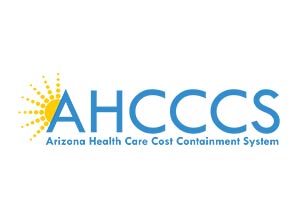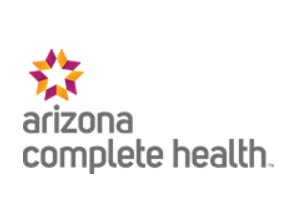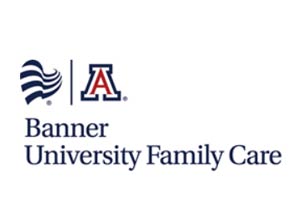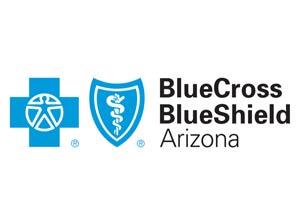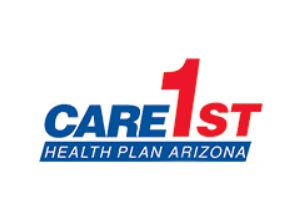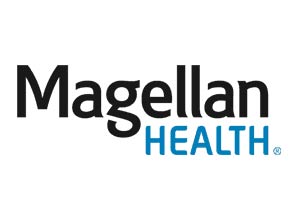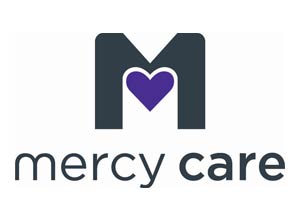
Inpatient Addiction Treatment in Phoenix
Residential care provides a nurturing environment where you can focus on healing and rebuilding your life free from the grip of addiction. Call (602) 626-8112 or click to get start your recovery journey.
Inpatient Addiction Treatment in Phoenix
Residential care provides a nurturing environment where you can focus on healing and rebuilding your life free from the grip of addiction. Call (602) 626-8112 or click to get start your recovery journey.

Residential Drug & Alcohol Rehab
The goal of residential treatment is to create a safe environment, where you can focus on your recovery without the stresses, pressures, and distractions that come from trying to get sober on your own.
Every patient in residential services works with a clinician and a case manager to focus on their individual needs for recovery, and receives the help and support they need to get back on his or her feet.
24/7 Support
Personal Case Manager
Food & Toiletries Provided
Phoenix's Most Trusted Resource for Addiction
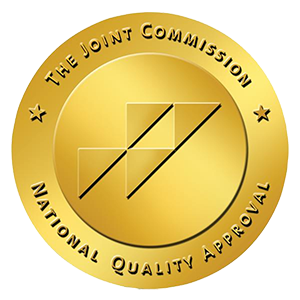
- Individual Therapy
- Smart Recovery Groups
- Small Group Therapy
- HIV/ AIDS Education
- Family Counseling
- Housing Support
- Case Management Services
- Low-Cost Sober Living Housing
- Life Skills
- Education
- Relapse Prevention Education
- Vocational/ Employment Training
- Vocational/ Employment Training
- Individual Aftercare Planning
- Peer Support Groups
- 12-Step Education
Axiom Care believes the relationship between clients and therapists is the most important element for success on the road to recovery from drug and alcohol dependency. We strive to treat all clients with respect and dignity, while providing a safe place to explore and develop personal accountability.
Our clinical team utilizes the Stages of Change and understands that people can be at different levels of commitment to sobriety and still get the help they need.
We strive to serve anyone needing assistance to overcome addiction. Axiom Care recognizes it is so much more than abstinence from drugs and alcohol; it’s defining a whole new way of living.To overcome addiction, we aim to treat the causes.
We provide individuals with the tools and support needed to manage the stresses of everyday life, to live independently; and have connections to valuable resources and services.
Axiom Care's Success Stories
Franklin
“Although this program could be extremely difficult at times, I benefitted quite a bit from it. I'd especially like to point out Heidi. Her groups were engaging and she was always ready to help, whether it was resources, guidance or just lending an ear.”
Janine
“After completing my transition program I can say that the program and staff really care. Even being concerned with my after care and helping get me into a program where I can get the individual care I need.”

Contact Axiom Care for a No-Obligation Consultation
Take the first steps towards recovery with Axiom Care. Get in touch with our team today for a no-obligation consultation.
We encourage you to reach out to discuss your options and to set up a time to tour our detox and rehab centers in the Phoenix metro area.
Arizona Medicaid (AHCCCS) Health Insurance Coverage
On October 1st, 2018, Arizona restructured its health services into three regions, assigning various health plans to each. In Maricopa and Pinal counties, there are seven health plans, and Axiom Care provides services through all of them, as well as the American Indian Health Plan. Currently, Axiom Care doesn't accept private insurance but plans to in the future. We have a team ready to assist those not enrolled with AHCCCS. Select from the following insurers to learn more about your specific coverage.
It's Time to Break Free from Addiction


Residential Rehabilitation Intake & Stay
Navigating insurance claims, finding out where to go, and what options are even available can be a difficult process. You’re dealing with enough. That’s why at Axiom Care, we make every effort to simplify the process for you, and help our patients obtain the treatment they need to take those first steps into recovery.
AHCCCS Certified Case Workers
Personalized Programs
Most Insurances Accepted
Our residential treatment program takes a holistic approach to recovery by focusing on each individual as a whole. By focusing on nutrition, mental and physical health, as well as stabilization and the 12-steps, you will have the best opportunity to achieve long-term sobriety.
Group Times per Day with Housemates
Weekly One-On-One Session with Licensed Therapist
Exercise & Weight Equipment
Well-Deserved Downtime & Relaxation
What services does Axiom offer?
What rehab programs does Axiom provide?
What if I am on parole or probation?
Can I live at your facility while in treatment?
How do I support recovery efforts in my community?
How long is a typical stay in detox?
Is there anything I need to bring with me during my stay?
How can I support my loved one during his or her stay?
Can I have visitors while in detox?
How are you handling business in regard to COVID-19?
Phoenix’s Commonly Abused Substances
Alcohol addiction is a complex issue that can be caused by various factors. Some people may turn to alcohol as an escape from stress or emotional pain, while others might develop an addiction due to genetic predisposition or environmental influences such as peer pressure and societal norms.
The addictive nature of alcohol lies in its ability to stimulate the release of dopamine in our brains, creating feelings of pleasure and reward. Over time, this leads individuals into developing tolerance where they need more amounts for the same effect; hence making it hard for them not only physically but also psychologically resist drinking.
Overcoming alcoholism requires both physical detoxification and psychological support. The first step involves seeking medical help since withdrawal symptoms could potentially be life-threatening without proper supervision. This process helps cleanse one’s body off any traces left behind by prolonged usage which often results in severe cravings during early stages recovery period.
Fentanyl, a potent synthetic opioid, first emerged as a prevalent drug in the mid-20th century. Initially used for medical purposes such as pain relief after surgery or during cancer treatment, it soon found its way into illicit use due to its powerful effects and ease of production.
Compared to other opioids like morphine or heroin, fentanyl’s addiction potential is significantly higher. It’s estimated that this substance can be up to 100 times more potent than morphine and about 50 times stronger than heroin. This potency leads users quickly down the path of dependency with an increased risk for overdose.
For those grappling with fentanyl addiction seeking recovery options are available, but they require commitment and determination from addicts themselves along with support from healthcare professionals and family members alike. Medical detoxification under professional supervision is often necessary given the severity of withdrawal symptoms associated with usage.
Xylazine, often referred to as ‘tranq‘, is a non-opioid sedative and analgesic primarily used in veterinary medicine. However, it has found its way into the illicit drug market due to its ability to enhance the effects of opioids like heroin or fentanyl. The dark secret behind xylazine lies not only in this potent combination but also within itself – despite being less addictive than opioids, it can cause severe physical harm including skin lesions and organ damage.
The rapid spread of tranq among substance users could be attributed largely to sinister forces such as lack of regulation on veterinary drugs combined with easy accessibility through online platforms. This availability coupled with low cost makes xylazine an attractive choice for those seeking intensified highs from their opioid use without considering potential health risks involved.
Side-effects associated with using tranq are shadowy indeed; they range from immediate symptoms like drowsiness and respiratory depression, which may lead up to a fatal overdose if mixed with other powerful chemicals, to necrotizing fasciitis – skin-eating infection that progressively gets worse with use. Long-term usage results in more serious complications involving the heart, liver, and kidneys. Even leading to amputation and death for some.
Heroin addiction is a severe issue that drastically impacts lives. This potent opioid hooks users quickly, leading to physical dependence and psychological obsession. The effects are devastating – from deteriorating health conditions like heart disease or liver failure to social consequences such as broken relationships and job loss.
The reasons for addicts seeking help vary, but often stem from the realization of their life spiraling out of control due to heroin use. They may be motivated by loved ones’ pleas, legal troubles, worsening health issues or simply an inner desire for change; regardless it’s crucial they reach out before irreversible damage occurs.
Quitting heroin isn’t easy though – withdrawal symptoms can be intense causing many to relapse during early recovery stages. Medical detoxification under professional supervision becomes necessary in these cases, providing a safe environment where individuals can cleanse themselves from harmful substances while managing discomfort associated with withdrawal.
Methamphetamine, known as meth, is a potent stimulant that triggers the release of dopamine in the bran. This neurotransmitter creates feelings of pleasure and reward which makes users crave more. Over time, individuals develop tolerance needing higher doses to achieve similar effects of euphoria, leading towards addiction.
The health impacts are severe – from physical symptoms like rapid heart rate or tooth decay (known as ‘meth mouth’) to mental health issues, such as paranoia and hallucinations. Long-term use can lead to irreversible damage, including heart disease and stroke. Abuse also causes social problems like job loss due its debilitating effect on one’s ability to function normally while conducting daily life activities.
Quitting meth isn’t easy, but it’s possible with the right support. Medical detoxification under professional supervision becomes crucial during initial stages of recovery to manage withdrawal symptoms safely and effectively. Afterward, therapy sessions play a key role in addressing root causes behind dependency – helping addicts build healthier coping mechanisms, thus paving the way towards sobriety.
Cocaine, a powerful stimulant drug, comes in two primary forms: powder cocaine and crack cocaine. Both types are prevalent in addiction treatment programs due to their high potential for abuse and dependency. Powdered cocaine is typically snorted or injected after being dissolved, while crack – the crystallized form of this substance – is usually smoked.
Dependence on either type can develop rapidly with regular use; some individuals may become addicted within just a few uses or develop a habit after weekend use. The speed at which dependence develops often depends on how it’s consumed – smoking or injecting leads to quicker onset of effects, hence faster development of addiction compared to snorting.
Treatment methods vary based upon individual needs, but generally involve both medical detoxification and therapy sessions aimed at addressing root causes behind the patient’s dependency. Detox, if required, helps manage withdrawal symptoms under professional supervision, ensuring safety during early recovery stages.
Prescription medications with high addiction potential often include opioids, benzodiazepines, and stimulants. Opioids, like Oxycodone or Hydrocodone, are typically prescribed for pain relief, but can lead to dependency due to their euphoric effects. Benzodiazepines such as Xanax or Valium, used for anxiety disorders, also carry a risk of habituation because they induce feelings of calmness.
Habitual use alters lives drastically – from health deterioration to social consequences. Physically, long-term usage may result in liver damage, kidney failure, and heart disease among other conditions, depending on the specific drug involved. Psychologically, it could cause mood swings, depression, and even cognitive impairment over time.
Social addicts might face job loss, broken relationships, and legal troubles stemming from substance abuse. The financial burden associated with procuring these drugs illegally, once prescriptions run out, further exacerbates problems leading towards poverty and in a lot of cases, extreme desperation.

You Are Cherished by Those Who Love You!

More Ways Axiom Helps
Detox
Outpatient
RCBM

Phoenix, AZ
Alcoholism, too, poses significant challenges for addicts in Central Arizona, just like any large urban area, but there’s something different about how it affects people living within desert surroundings. Dehydration exacerbates the effects from drinking excessively, making recovery even harder than usual circumstances might allow elsewhere. Thus leading towards greater instances of relapse among recovering addicts who reside in the Valley when compared against national averages.
